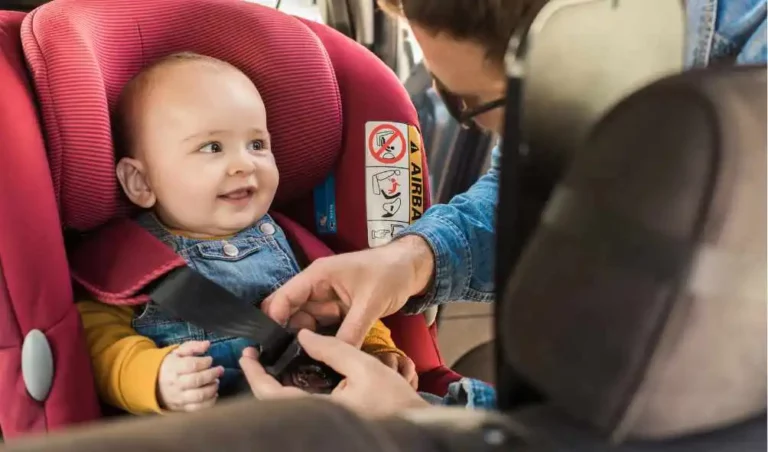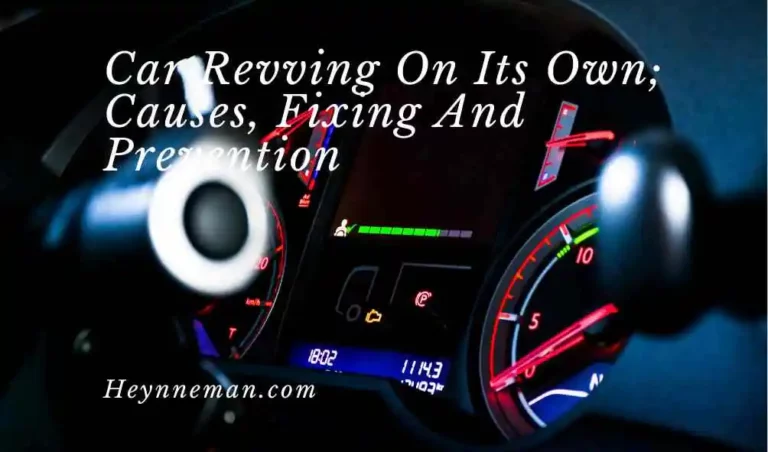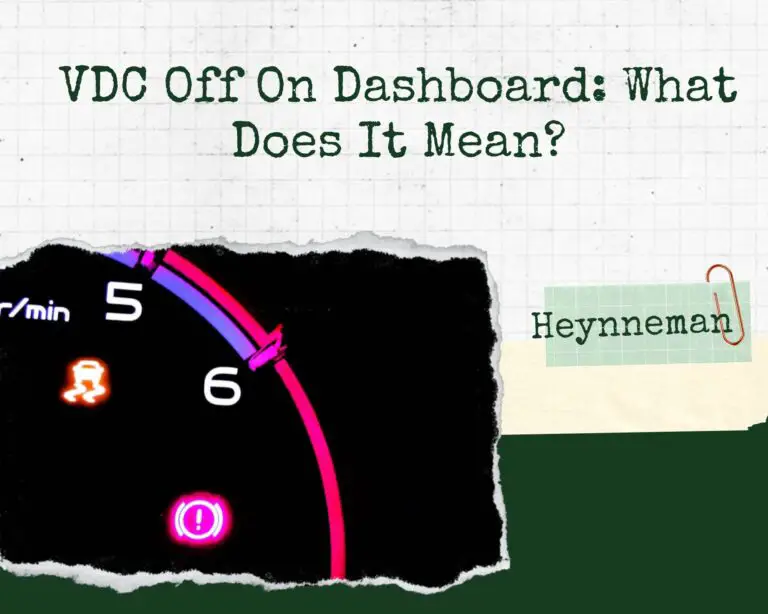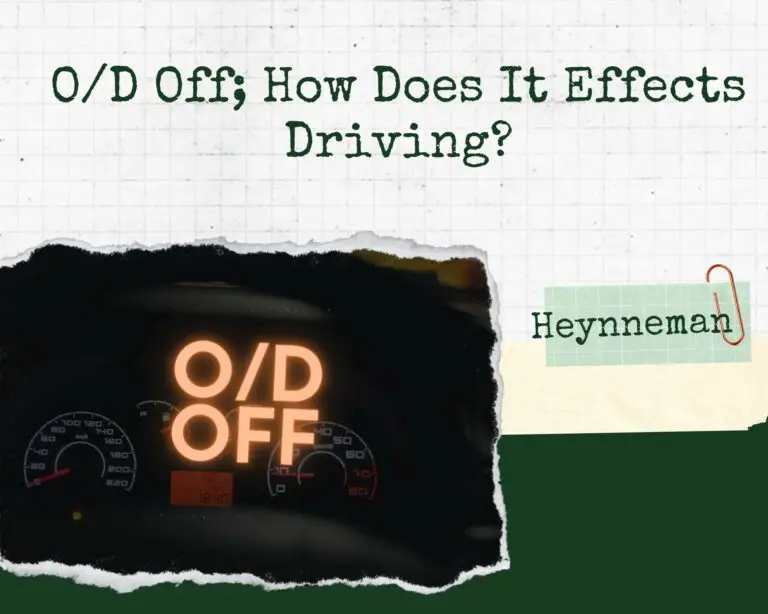When Car Battery Dead? Must Read For You
For any vehicle owner, a dead battery can be a frustrating and unexpected problem. Knowing how to recognize a dead battery can help you prepare for this situation and keep you from becoming stranded on the road.
In this article, we’ll go over the most common symptoms of a dead battery and how to test your battery to see if it needs to be replaced. With this knowledge, you can take the necessary steps to ensure that your vehicle starts every time you turn the key.
What are the signs of a dead battery in a car?

There are several indicators that a car battery dead, some of which are as follows:
Slow engine crank
When you turn the ignition key, the engine should start immediately. If the engine takes longer than usual to start or makes a clicking sound, it could be a sign of a dead battery.
Dimming headlights
If your headlights appear dimmer than usual or take longer to brighten when you turn them on, it could be a sign that your battery is not supplying enough power.
Electrical problems
If you notice that your car’s electronic systems, such as the radio or power windows, are not working properly or at all, this could indicate a dead battery.
Battery warning light
Many cars have a warning light on the dashboard that illuminates if the battery is not providing enough power.
Battery life expectancy is approximately 3-5 years. If your vehicle is older than that and you are experiencing any of the above symptoms, the battery is most likely dead and needs to be replaced.
It should be noted that these symptoms can also be caused by other problems, such as a faulty alternator or a loose connection. However, if you notice any of these symptoms, you should test your battery to see if it needs to be replaced.
What do you do if your car battery is completely dead?
Jump-start the battery
If your battery is completely dead, the first thing you should try to do is jump-start it with jumper cables and another vehicle.
Connecting the positive cable to the positive terminal of the dead battery and the negative cable to the negative terminal of the working battery is what this entails.
Start the working vehicle and let it run for a few minutes to charge the dead battery once the cables are connected.
Charge the battery
If you don’t have another vehicle, you can use a battery charger to charge your battery. There are various types of chargers available, including trickle chargers and smart chargers, that can be used to safely and efficiently charge your battery.
Replace the battery
If jump-starting or charging the battery does not work, the battery may need to be replaced. You can replace the battery in your car yourself if you have the necessary tools and knowledge, or you can take it to a mechanic.
Check the alternator
Before replacing the battery, have your car’s alternator checked by a mechanic, as a faulty alternator can also result in a dead battery.
Call for Roadside Assistance
If you lack the necessary equipment, knowledge, or time to jump start or charge your battery, you can seek assistance from your roadside assistance service. They will dispatch an expert to jumpstart or charge your battery and get you back on the road.
It’s also important to remember that if your battery continues to die, it could be a sign of a larger problem with your car’s electrical system and should be inspected by a professional.
Internal Windshield Crack: Causes, Fixing, Cost, and Prevention
heynneman
Can a dead battery start again?
A dead battery can be recharged and restarted, but this is dependent on the cause of the battery’s death.
If the battery was simply discharged due to leaving the headlights on or another similar reason, it can be recharged and resume normal operation. The battery can be recharged or jump-started to bring it back to life.
However, if the battery is old and worn out, it may not be able to hold a charge or start the car even after it has been recharged. In this case, the battery must be replaced.
Furthermore, if the battery has been dead for an extended period of time, its internal structure may have been damaged, rendering it unable to hold a charge or function properly. It would have to be replaced as well.
It’s important to note that even if a dead battery can be restarted, this could indicate an underlying problem with the vehicle’s electrical system or that the battery is nearing the end of its life and will need to be replaced soon.
How long is the average car battery last?
A car battery has an average lifespan of 3 to 5 years, depending on usage and the environment where the car is mostly parked. Extreme temperatures, frequent short trips, and leaving lights or other electrical devices on while the engine is turned off can all reduce the life of a car battery.
It is important to note that even if a battery has not reached its maximum lifespan, it may still fail due to other factors such as poor electrical connections or an alternator that is not properly charging the battery.
Regularly inspecting and cleaning the battery, as well as performing routine car maintenance, can help to extend the battery’s life. To avoid being stranded, have the battery checked during regular service check-ups and replace the battery before it fails.
What shortens car battery life?
Several factors, some of which are listed below, can reduce the life of a car battery.
- Extreme temperatures
Extreme heat or cold can damage a battery’s internal structure, causing it to fail prematurely. Extreme temperatures can have a significant impact on a car battery’s health.
High temperatures can cause the battery to overheat and evaporate the electrolyte liquid inside, causing damage to the battery’s internal structure and shortening its lifespan.
Cold temperatures can reduce battery performance, making it more difficult to start the engine and reducing its capacity to hold a charge. As a result, the battery may fail prematurely.
- Short trips
Short trips do not allow the battery to fully charge, causing it to degrade over time. Short trips can be bad for a car battery’s health because the alternator doesn’t have enough time to fully charge the battery while the engine is running.
In these cases, the battery is constantly being discharged and recharged, which can cause it to degrade over time and reduce its lifespan. This is especially troublesome in colder climates, where the battery already has to work harder to start the engine. Longer trips or the use of a battery maintainer are recommended to keep it charged.
- Electrical loads
When the engine is turned off, leaving lights, radios, or other electrical devices on can drain the battery and shorten its life.
- Not checking battery water levels
Neglecting to check the battery’s water levels or connections can cause damage and shorten its life. Failure to check the water levels in a car battery can reduce its lifespan.
The water level should be checked on a regular basis to ensure that it is at the correct level; if it is too low, the battery will overheat and damage the internal structure; if it is too high, the battery will leak and cause damage to the car. Checking the water level on a regular basis can help extend the battery’s life.
- Corrosion
Corrosion on the battery terminals can prevent the battery from charging properly and shorten its life. Corrosion on the battery terminals can be harmful to the health of a car battery. Corrosion can prevent the battery from charging properly, reduce terminal conductivity, and cause the battery to fail prematurely.
It can also cause the battery terminals to become loose, which can degrade the battery’s performance and cause it to fail. Cleaning the terminals on a regular basis and keeping them free of corrosion can help to extend the life of the battery and ensure proper operation.
Car Won’t Start No Clicking; Troubleshooting and Fixing.
heynneman
Does a weak battery affect car performance?
The internal components of the engine are harmed by a weak battery, which has an impact on performance.
Low voltage raises the temperature, which can lead to overheating and damage the engine components.
How long does a car battery take to charge?
It will take roughly 10–24 hours to fully charge a regular car battery with a typical charge amp of 4–8 amperes.
It would take about 2-4 hours to sufficiently charge your battery so that you could start the engine. Recharging slowly is the best way to ensure that your car battery lasts a long time.
What happens if you connect negative first?
Never attach the black cable to the dead battery’s negative (-) terminal. This is extremely risky and might cause an explosion.
When jumpstarting your car, be sure to adhere to the owner’s manual’s instructions.
Internal Windshield Crack: Causes, Fixing, Cost, and Prevention






